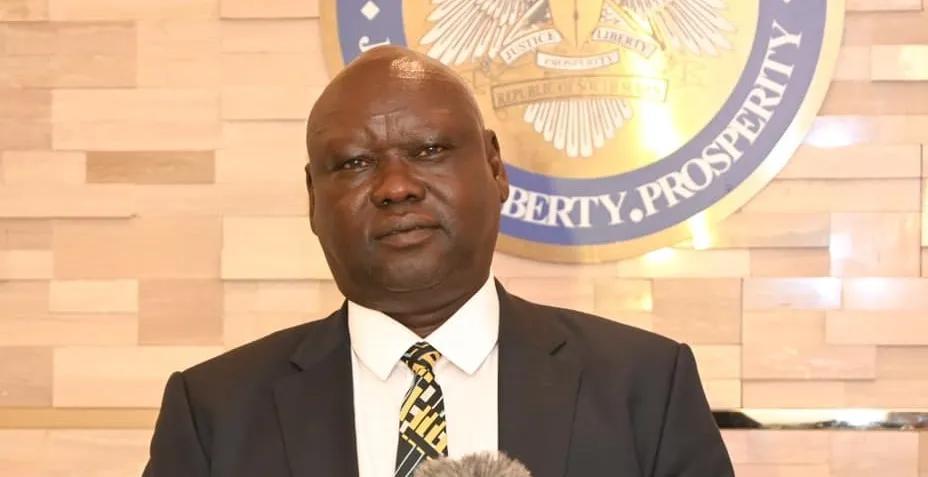Africa-Press – South-Sudan. A faction of the SPLM-IO led by Stephen Par Kuol has criticized the government’s six-point Strategic Response Plan on the implementation of the peace agreement, for ignoring ongoing military operations, arguing that peace cannot progress without first ending the violence.
In an exclusive interview with Eye Radio on Thursday, May 1, the Interim Spokesperson of the SPLM-IO in Juba, Diing Lam Yual, criticized the plan for excluding key stakeholders, stating that the group was not consulted.
The plan, unveiled on April 26 by the High-Level Standing Committee (HLSC) on Implementation of the Peace Agreement, outlines several priority areas, including leadership representation, reconstitution of peace agreement structures, security reform, and the revision of the electoral timeline and budget.
It also includes a proposal for a second phase of the peace roadmap and suggests recognizing one faction of the SPLM-IO as the legitimate partner in the agreement’s implementation.
However, the spokesperson for the Interim SPLM-IO leadership condemned the move, calling the process exclusionary and incomplete.
“We were not consulted in the drafting of this document,” Diing told Eye Radio in an exclusive interview. “There is ongoing fighting even as we speak. The strategic document should have addressed how to move forward in a peaceful manner. For example, just yesterday [Wednesday, April 30], there was fighting in Fangak—this is the reality on the ground that cannot be ignored.”
Diing argued that the plan failed to acknowledge ongoing military confrontations and did not offer solutions for ending violence among the signatories of the Revitalized Agreement on the Resolution of the Conflict in South Sudan (R-ARCSS).
“If the aim is to find a peaceful way forward, then the first step should be to stop the fighting. That’s something the document failed to elaborate on,” he said.
He further emphasized that the strategic plan should have been co-authored by all parties to the agreement to ensure inclusivity and legitimacy.
“We actually agree with many of the principles in the document,” Diing added. “But the High-Level Standing Committee is composed of representatives from all signatories—the SPLM-IG, SPLM-IO, SSOA, and OPP.”
“Decisions should be made collectively. So if one party acts unilaterally, it naturally raises concern. Why weren’t all parties invited to sit together and decide how to move forward?”
Earlier in the week, Oyet Nathaniel, Acting Chairperson of the SPLM-IO loyal to the detained First Vice President Dr. Riek Machar, also dismissed the plan, calling it a unilateral position by the incumbent government, not a collective decision of the peace parties.
As tensions persist and military confrontations continue, the lack of consensus on the way forward presents yet another hurdle in South Sudan’s fragile peace process.
For More News And Analysis About South-Sudan Follow Africa-Press






